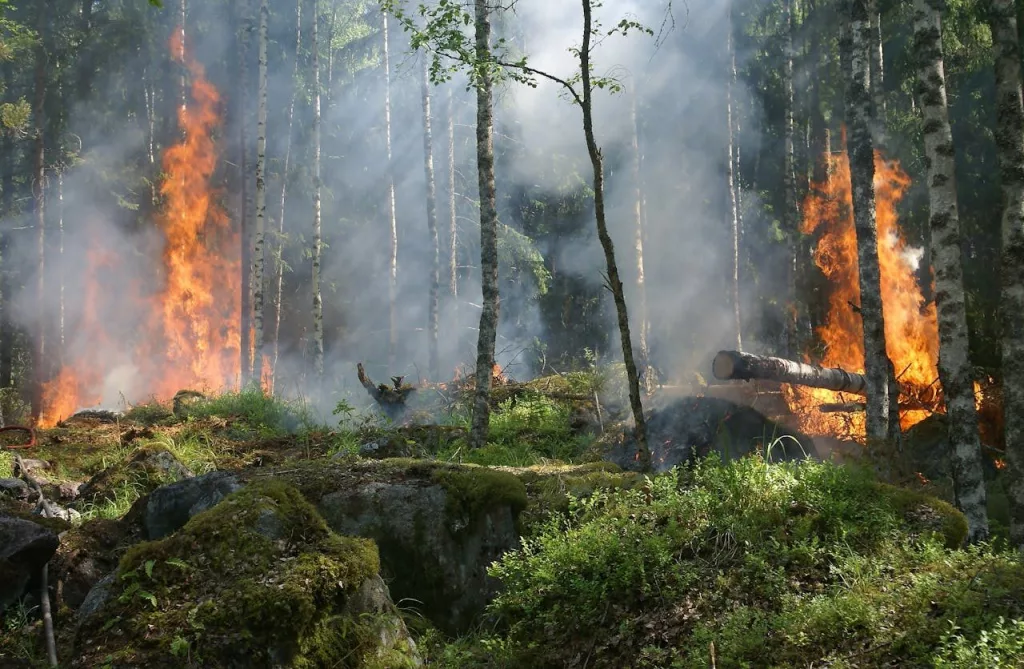PULLMAN, WA – Washington State University researchers have recently received a $1 million National Science Foundation grant to develop a planning framework for wildfire-related power outages.
“The overarching goal of this project is to establish a community-centric wildfire resilience planning framework that can mitigate the wildfire-related power outage risk,” said Ji Yun Lee, associate professor in the Department of Civil and Environmental Engineering, who is leading the project. “We hope this work is going to be helpful for our local communities.”
The five-year, multidisciplinary project includes researchers in power engineering, nursing, and from WSU Extension.
Wildfire-related power outages are a recurring threat to many communities throughout the U.S. Because of climate change as well as aging infrastructure, power outages are happening more often and for longer periods of time. So, for instance, in California 70% of census tracts located within high fire threat areas have experienced at least one public safety power outage per year. The electric power grid and wildfires also have an odd two-way relationship — that is, the power grid can cause devastating wildfires while wildfires can also cause power outages, said Lee.
Because of climate change as well as aging infrastructure, power outages are happening more often and for longer periods of time.
Traditionally, power companies have considered overall efficiency and performance of the system in their planning. In their project, the WSU team aims to bring in the community perspective, considering the fair distribution and the cost and benefit of planning solutions.
As part of the project, the group will establish collaborative community groups that will include utility companies, rate payers, local agencies, and health and energy organizations. The groups will meet quarterly to learn about the needs, values and perspectives of community members.
“At the end of this project, we want to suggest actionable solutions,” said Lee. “When we know the values, needs and perspective of the community, we can incorporate them into engineering solutions.”
The researchers will also develop an advanced wildfire simulator and outage prediction tool that will integrate diverse landscapes, community characteristics, and ignition sources around the Pacific Northwest.
Wildfires can behave differently depending on their environment and landscape, said Lee. A forest fire in a largely forested area has much different considerations and will be managed differently than one that is near rural housing. A third type of wildfire can happen in entirely urban areas, such as the recent Los Angeles fire. The researchers will work to better predict the wildfire risk to the power grid and to understand the interaction between the wildfires and the power grid system.
“If there is no urban infrastructure, it is much easier to simulate wildfire propagation, but if there are buildings, roads, and power lines, then the wildfire propagation simulation becomes much more complicated,” she said. “We have to have a comprehensive wildfire simulator that can understand a fire that starts from the wildlands and then propagates into a more urban area.”
The simulator will provide a realistic prediction of wildfire risks across entire service areas and will serve to fully understand wildfire impacts on both humans and the power grid.
Once the group has community input as well as the new wildfire simulation tool, the researchers will develop actionable, science-based solutions, said Lee. Solutions might include things like focused vegetation management, micro-grids, or buried utility lines.
In addition to Lee, researchers on the project include Claire Richards and Julie Postma from WSU’s College of Nursing, Anamika Dubey, from the School of Electrical Engineering and Computer Science, and Anthony Gromko, director of WSU Extension for Snohomish County.
